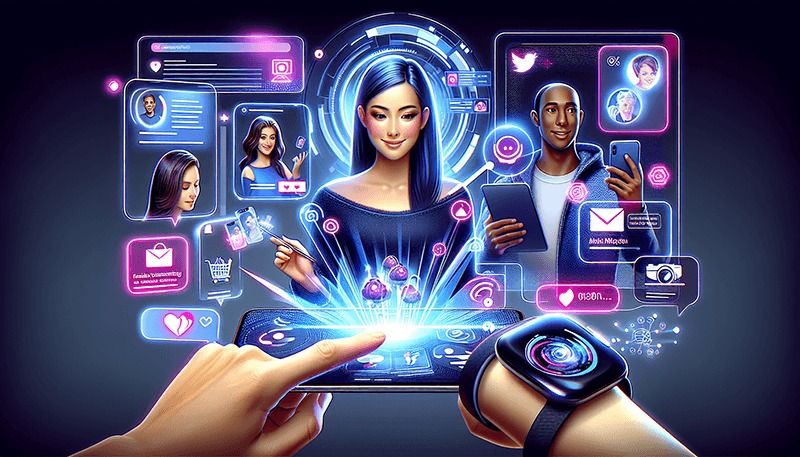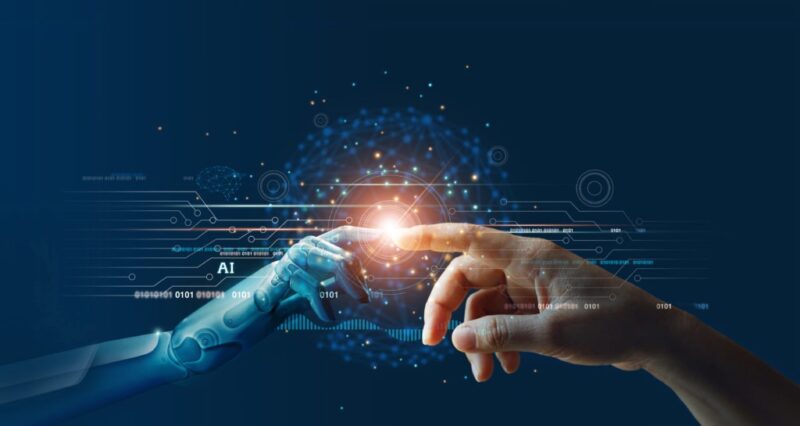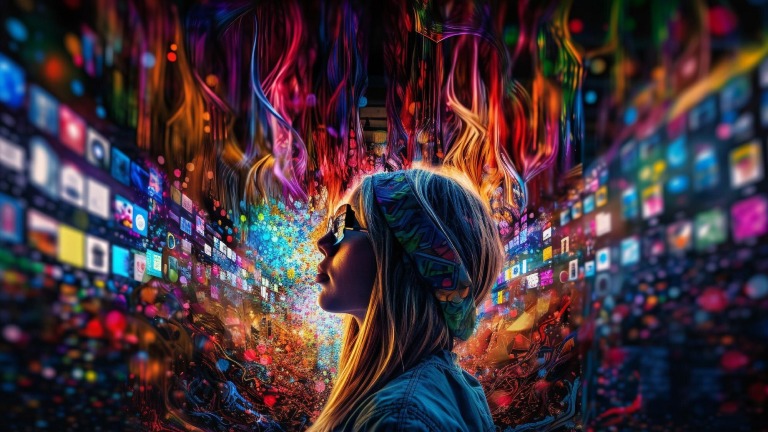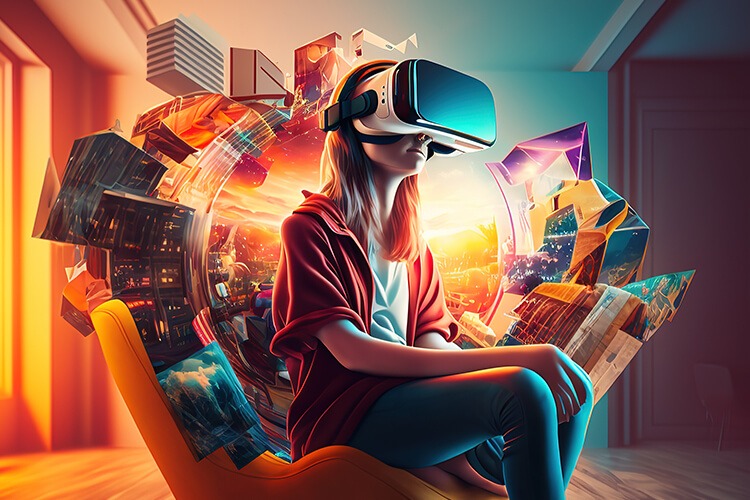The digital entertainment industry is constantly evolving, driven by new technologies that shape how we consume content, interact with platforms, and even create art. One of the most influential technologies making waves today is artificial intelligence (AI). From personalized recommendations to immersive experiences, AI is changing the way we experience entertainment.
It’s not just about automation or efficiency; it’s about enhancing creativity and bringing innovative ideas to life. In this article, we’ll explore how AI is transforming the digital entertainment industry and what that means for both creators and consumers.
AI in Content Creation

Artificial intelligence is playing an increasingly important role in content creation, allowing artists, filmmakers, musicians, and game developers to explore new creative possibilities. Whether it’s generating new music, writing scripts, or producing special effects, AI is helping creators think outside the box and push the boundaries of what’s possible.
AI-Generated Music and Soundtracks
AI’s ability to generate music is perhaps one of the most exciting developments in the entertainment industry. Platforms like Amper Music and Aiva have been designed to create original music based on simple inputs from users, such as mood, genre, and tempo. This means that anyone, regardless of their musical expertise, can generate high-quality music for films, commercials, or video games. The ability to create customized soundtracks with the help of AI is revolutionizing the way music is produced and consumed.
Moreover, AI is also being used in sound design, helping filmmakers and game developers create immersive soundscapes. For example, AI algorithms can analyze a scene and automatically generate background music or sound effects that complement the mood and tone of the content. This reduces the time and effort needed for sound production and enhances the overall viewing or playing experience.
AI in Film and Animation
AI is making waves in film production as well. From CGI effects to virtual actors, AI is being used to streamline the production process and enhance storytelling. With AI, filmmakers can generate highly realistic digital environments to play slot gacor hari ini, create animated characters, or even de-age actors with the help of deep learning technology. This has opened up new creative possibilities in film, allowing filmmakers to tell stories that were once thought impossible.
One interesting application of AI in filmmaking is the use of deepfake technology. Deepfakes can create incredibly realistic digital versions of actors, enabling filmmakers to produce scenes that would otherwise be difficult or costly to achieve. While the technology has raised ethical concerns, it also represents the potential for AI to revolutionize how movies are made. For example, AI-generated avatars or characters can now act in movies, which might significantly reduce production costs and time.
AI in Content Personalization

Personalization is one of the most obvious ways AI is transforming the digital entertainment industry. Today’s content platforms, from Netflix to Spotify, use AI algorithms to recommend shows, movies, and music based on your preferences and behavior. But AI’s impact on personalization goes beyond simple recommendations.
Personalized Recommendations and Content Discovery
Streaming services use AI to analyze your viewing habits and preferences, ensuring that the content suggested to you is tailored to your interests. This goes beyond just tracking what you watch—it takes into account the time of day, how long you watch something, and even how you engage with different genres. Netflix, for instance, uses AI to create personalized movie and TV show recommendations for each user. This helps platforms maintain user engagement and provide relevant content to a global audience with diverse tastes.
As AI technology becomes more advanced, platforms are able to fine-tune their algorithms to offer even more accurate and personalized recommendations. Additionally, AI can introduce you to content that you might not have found otherwise, broadening your entertainment horizons. This level of personalization creates a more enjoyable and engaging user experience, and it’s likely to continue evolving in the coming years.
AI and Interactive Entertainment
Another exciting way AI is transforming entertainment is through interactive experiences, such as video games, virtual reality (VR), and augmented reality (AR). AI has the ability to make these experiences more immersive and dynamic by adapting to the player’s actions and choices.
In the gaming industry, AI-driven NPCs (non-player characters) are becoming more realistic and intelligent. Games like “Red Dead Redemption 2” and “The Last of Us Part II” feature AI-controlled characters that react to player choices and behavior in unique ways. AI allows these characters to respond to in-game situations and adapt to the player’s actions, creating a more dynamic and personalized experience.
Virtual reality and augmented reality experiences are also benefiting from AI. In VR games, AI can create dynamic environments that change based on the player’s actions, making the virtual world feel more responsive and alive. In AR, AI is used to analyze the real world and overlay digital elements in a way that interacts with the physical environment. This opens up new possibilities for creating immersive and engaging interactive entertainment.
AI and Consumer Interaction

Artificial intelligence isn’t just improving how content is created or personalized—it’s also changing the way consumers interact with the entertainment industry. From customer support chatbots to virtual assistants, AI is becoming a crucial tool for enhancing customer engagement and improving service.
Chatbots and Virtual Assistants
Chatbots and virtual assistants powered by AI are making it easier for consumers to interact with entertainment platforms. Whether it’s asking for recommendations, getting help with account issues, or discovering new content, AI-powered assistants are available 24/7 to provide instant support. Streaming services like Spotify and Netflix are beginning to incorporate these tools to enhance the user experience.
These virtual assistants are becoming more sophisticated over time, able to understand natural language and even learn from past interactions to better serve the user. For example, in a music streaming app, an AI assistant could suggest new tracks based on the user’s mood or specific preferences, offering a highly tailored experience.
AI in Social Media and Marketing
AI is also being used to enhance marketing efforts within the digital entertainment industry. Streaming platforms, game developers, and film studios are using AI to analyze consumer behavior and predict what types of content will resonate with their audiences. With AI-driven tools, brands can personalize their marketing campaigns to suit individual preferences and maximize engagement.
For example, AI algorithms can identify trends and patterns in social media conversations, enabling entertainment companies to respond to audience interests in real-time. This allows for more effective targeting and better communication with fans. AI can even assist in creating personalized advertisements, ensuring that the right content reaches the right audience at the right time.
The Future of AI in Digital Entertainment

As artificial intelligence continues to evolve, its impact on the digital entertainment industry will only grow. From content creation to personalized experiences and consumer engagement, AI has the potential to revolutionize every aspect of entertainment. As we move into the future, AI will likely continue to enhance the ways we consume content, interact with platforms, and even create art. The possibilities are limitless, and it’s exciting to imagine where AI could take the digital entertainment industry next.
Last Note
AI is not just a tool for improving efficiency—it’s a catalyst for creativity, personalization, and innovation in the entertainment world. Whether you’re a creator, a consumer, or both, AI is changing the way we experience digital entertainment, making it more dynamic, engaging, and tailored to our individual preferences. As technology develops, we can expect even more exciting advancements and breakthroughs that will shape the future of entertainment for years to come.


